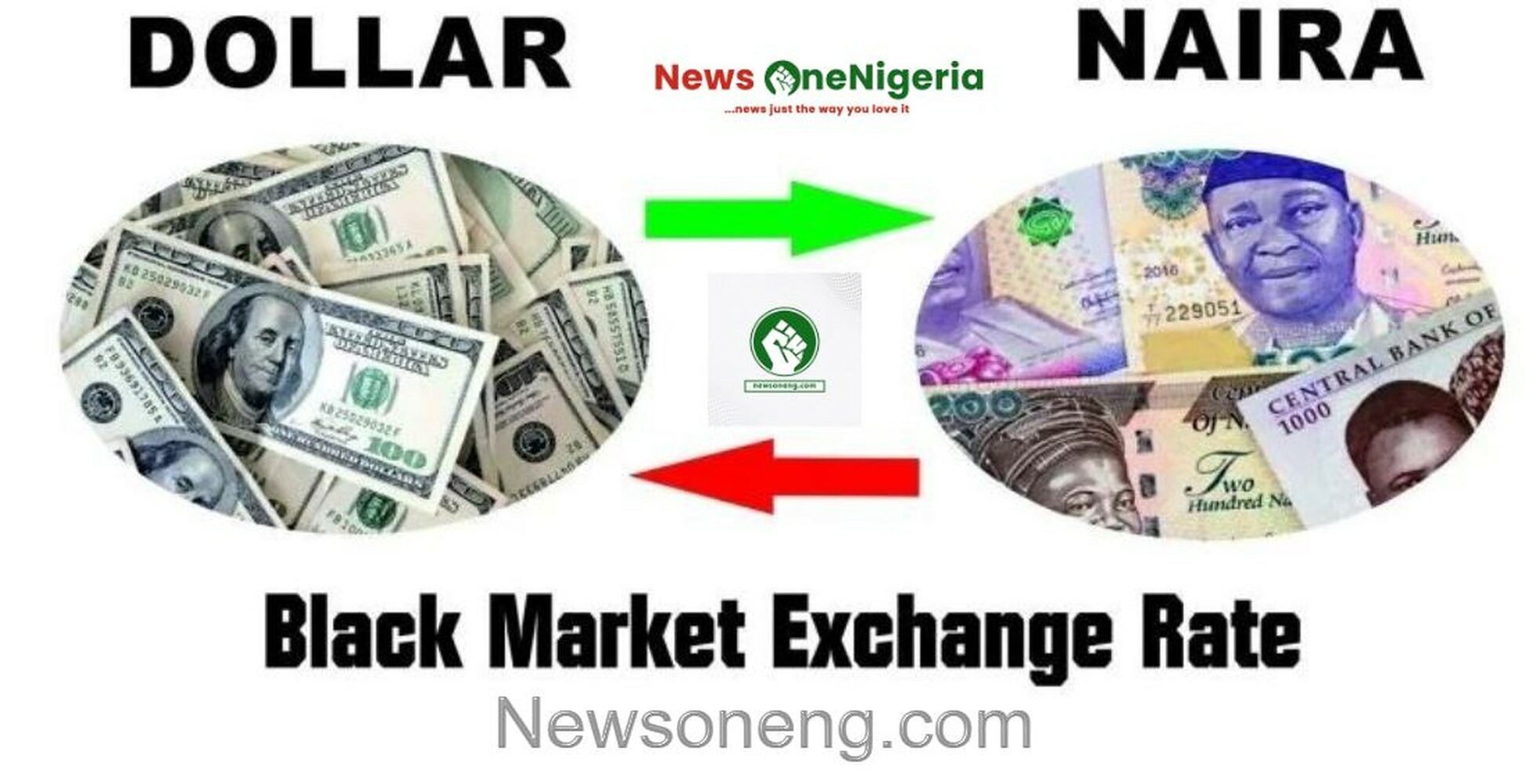Black market dollar to naira exchange rate today 26th February 2024 can be accessed below.
News-One reports that the exchange rate between the naira and the US dollar today, 26 February 2024 on the black market, opened at an average of N1,530/$1.
This report is according to information gathered from black market FX operators. Specifically, the traders noted that they buy FX from customers at an average of N1,500/$1 and sell for N1,530/$1. However, they also added that in some cases the rate could vary depending on the form of transaction, cash, or transfer. that is to say, you are likely to get a higher rate if you have physical cash to exchange.
Black market dollar to naira exchange rate today
| Dollar to Naira (USD to NGN) | Black Market Exchange Rate Today |
| Buying Rate | N1,500 |
| Selling Rate | N1,530 |
Please note that the rates you buy or sell forex may be different from what is captured in this article because prices vary.
CBN Official Naira to Foreign Exchange Rates
| 1 USD = 1560.4085 NGN |
| 1 Dollars = 1560.4085 Nigerian Naira |
| The USDNGN rate as of 26 Feb 2024 |
Please note that the Central Bank of Nigeria (CBN) does not recognize the parallel market (black market), as it has directed individuals who want to engage in Forex to approach their respective banks.
“The only exchange rate remains the I&E window, which is the market we expect everybody who wishes to procure or sell forex to get it,” said the CBN Governor, Godwin Emefiele.
“I am sorry to say that I do not, and I do not intend to recognise any FX in the market.
“Go to your bank. Even if your limit is above what the bank is selling, put it forward, and we will look into it. If you want to sell the dollar, go to your bank and sell it,” the CBN Governor said during a press briefing on September 17, 2021.
Factors Influencing Foreign Exchange Rate
Here are some of the causes of the dwindling dollar to naira exchange rate.
Inflation Rates: It is well known that inflation directly impacts black market exchange rates. If the Nigerian economy can be stabilized and inflation is controlled, the naira will benefit; however, if the naira continues to fall, it may indicate that food and other necessities are becoming more expensive daily.
Interest Rates: Another tool to keep an eye on is interest rates. If the interest rate at which banks lend money rises, it would harm the economy, causing it to contract and, as a result, the value of the naira to fall.
Government Debt: National debt can impact investor confidence and, as a result, the influx of funds into the economy. If inflows are high, the naira exchange rate will rise in favor of the naira.
Speculators: Speculators frequently impact the naira-to-dollar exchange rate. They stockpile money in anticipation of a gain, causing the naira to plummet even lower.
Conditions of Trade: Favorable trade terms will increase the value of the naira to the dollar, although Nigeria is currently experiencing a trade deficit. Everything comes from China, India, and the majority of Asian countries.
Fascinating Facts About the United States Dollar You Didn’t Know
You know that the United States dollar is our currency. But did you know…
-The dollar is three different denominations: the penny, nickel, and dime. The dollar is made up of 100 cents.
-The dollar was first introduced in 1792. It replaced the Spanish dollar, which was used in the colonies.
-The dollar is the most traded currency in the world.
-The dollar is also the most counterfeited currency in the world.
A Brief History of the US Dollar
Did you know that the United States dollar has quite a fascinating history? It was created in 1792 when the United States government passed the Coinage Act. This act designated the US dollar as the country’s official currency.
Since then, the dollar has gone through a few changes. For example, in 1854, the US replaced Spanish with American coins. And in 1933, President Franklin D. Roosevelt took the US off the gold standard, which meant that the dollar could no longer be exchanged for gold.
Today, the US dollar is one of the most commonly used currencies in the world. Over 60% of all international transactions are done in US dollars. So next time you spend your vacation dollars in a foreign country, you can feel confident that you’re using a currency that’s been around for a while!
Who Manages the Production of US Currency?
The United States Mint is in charge of producing the paper currency for the US dollar. It’s a governmental agency that falls under the Department of the Treasury. They’re responsible for producing not just paper money but coins as well.
Interestingly, the president decides the design for each bill and coin. The Mint then creates a prototype and sends it to the Treasury for approval. From there, it goes into production. So, each bill and coin you see in circulation has been approved by the president—which is why they sometimes feature his or her portrait on them.
Disclaimer: Newsone Nigeria does not set or determine forex rates. The official NAFEX rates are obtained from the website of the FMDQOTC. Parallel market rates are obtained from various sources, including online media outlets. The rates you buy or sell forex may be different from what is captured in this article.






